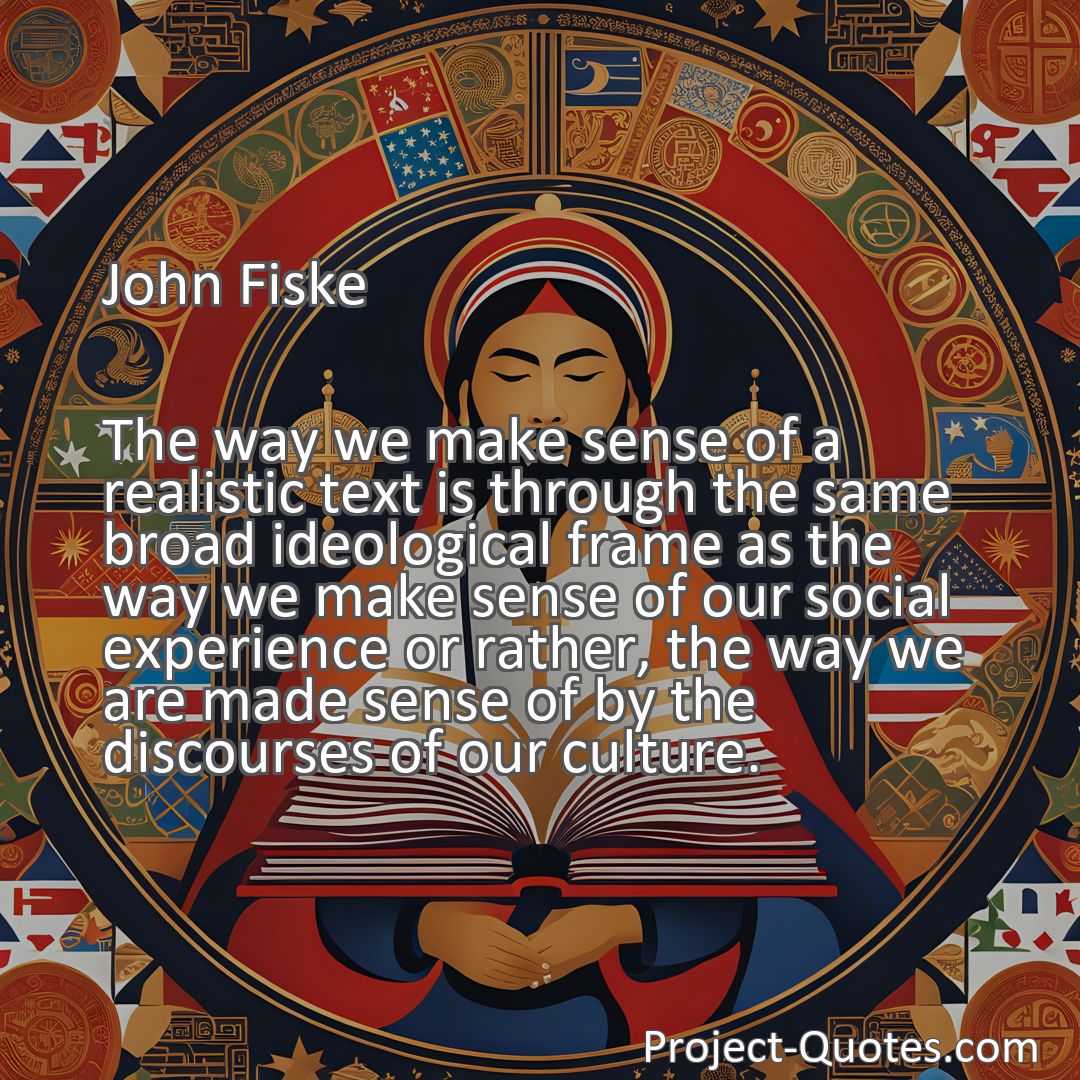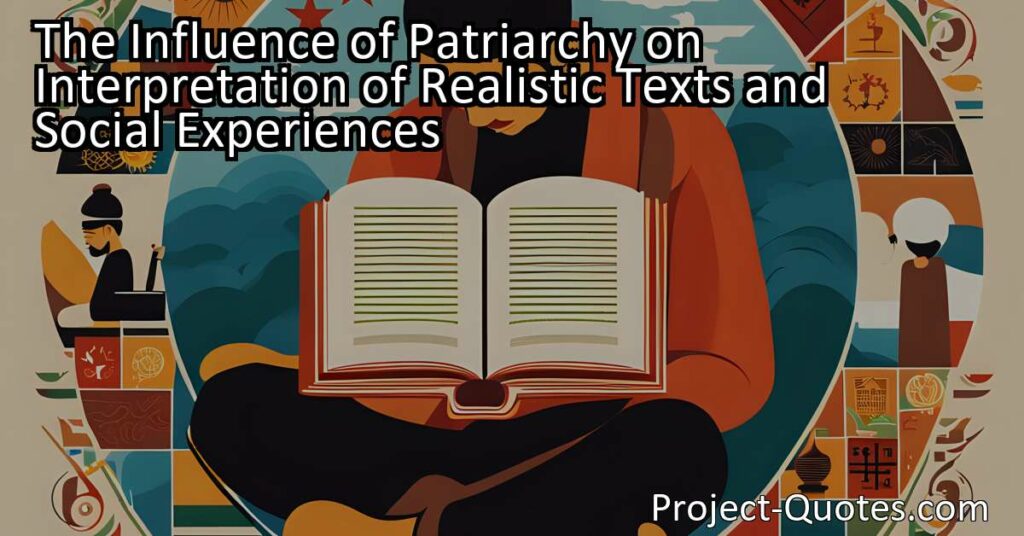John Fiske
The Influence of Patriarchy on Interpretation of Realistic Texts and Social Experiences Our understanding of realistic texts and social experiences is shaped by the influence of patriarchy and the dominant ideologies of our culture. The roles assigned by patriarchy impact our interpretations of characters’ actions and motivations, as well as our perceptions of social constructs such as race and class. However, through critical literacy, we can challenge these ideologies and broaden our worldview.
Table of Contents
- 1 The way we make sense of a realistic text is through the same broad ideological frame as the way we make sense of our social experience or rather, the way we are made sense of by the discourses of our culture.
- 2 John Fiske
- 3 Meaning of Quote – The way we make sense of a realistic text is through the same broad ideological frame as the way we make sense of our social experience or rather, the way we are made sense of by the discourses of our culture.
- 4 Freely Shareable Quote Image
- 5 Related
Have you ever wondered how we understand and interpret the stories we read? It turns out that the process of making sense of a fictional story is not so different from how we understand the world around us. In fact, the way we engage with a realistic text is influenced by the same ideological beliefs and cultural discourses that shape our social experiences.
When we read a realistic text, such as a novel or a short story, we bring our own perspectives, beliefs, and values to the interpretation process. Just like in our daily lives, our understanding of the story is shaped by the discourses of our culture, which are the dominant ideas and beliefs that circulate in society. These discourses inform not only how we perceive and interpret the text, but also how we are perceived and interpreted by others.
To better understand this concept, let’s consider an example. Imagine you are reading a novel set in a small town where the protagonist unexpectedly becomes friends with a newcomer. As you read the story, your interpretation of the characters and their actions will be influenced by the dominant discourses surrounding friendship, community, and social inclusion in your culture.
If your culture values close-knit communities and places a strong emphasis on maintaining established friendships, you might view the protagonist’s newfound friendship with suspicion. This suspicion could arise from the fear that the newcomer might disrupt the existing social order or change the dynamics of the community. On the other hand, if your culture places importance on diversity and inclusivity, you might view the protagonist’s friendship as a positive and progressive step.
These value systems and beliefs that affect your interpretation stem from the broader ideological framework of your culture. Ideology refers to the collection of ideas, values, and beliefs that shape and uphold social structures and power dynamics. It influences the way individuals perceive reality and the stories they encounter, whether in literature or in their day-to-day lives.
For instance, if your culture holds patriarchal ideologies, you might interpret the actions of the male characters in the story differently than you would if your culture promoted gender equality. This is because the dominant ideology of patriarchy often assigns different roles and expectations to individuals based on their gender. Consequently, it affects how we “make sense” of the characters and their motivations in the story.
Additionally, various social constructs such as race, class, and religion can also impact our understanding of a realistic text. The discourses surrounding these constructs shape our perceptions and judgments, often leading us to interpret characters and their actions through preconceived assumptions and biases.
Consider a scenario where a character from a marginalized racial group achieves a personal success in the story. If your cultural discourse perpetuates stereotypes and prejudices against that racial group, you might interpret the achievement as exceptional or surprising, instead of recognizing it as a natural outcome of the character’s abilities and efforts.
These examples illustrate how the way we make sense of a realistic text is intricately linked to the way we navigate our social experiences. Our cultural and ideological frameworks provide us with lenses through which we perceive and interpret both the fictional and real world. Therefore, our understanding of literature is not merely an isolated process, but rather a reflection of our social contexts.
However, it is essential to remember that while discourses and ideologies shape our interpretations, they are not fixed or universal. They are subject to change and evolve over time as societies progress and new perspectives emerge. As readers, we have the power to challenge and question the dominant ideologies by critically engaging with texts and examining alternative viewpoints.
Engaging in critical literacy allows us to explore multiple interpretations and consider the perspectives of marginalized voices often overlooked by dominant discourses. By interrogating the cultural and ideological frameworks that shape our understanding, we can foster empathy, challenge biases, and expand our worldview.
So, next time you pick up a book or read a realistic text, reflect on the ways your own beliefs and the discourses of your culture influence your interpretation. By recognizing the connection between our social experiences and the narratives we encounter, we can deepen our understanding of both literature and ourselves.
I hope this quote inspired image brings you hope and peace. Share it with someone who needs it today!


